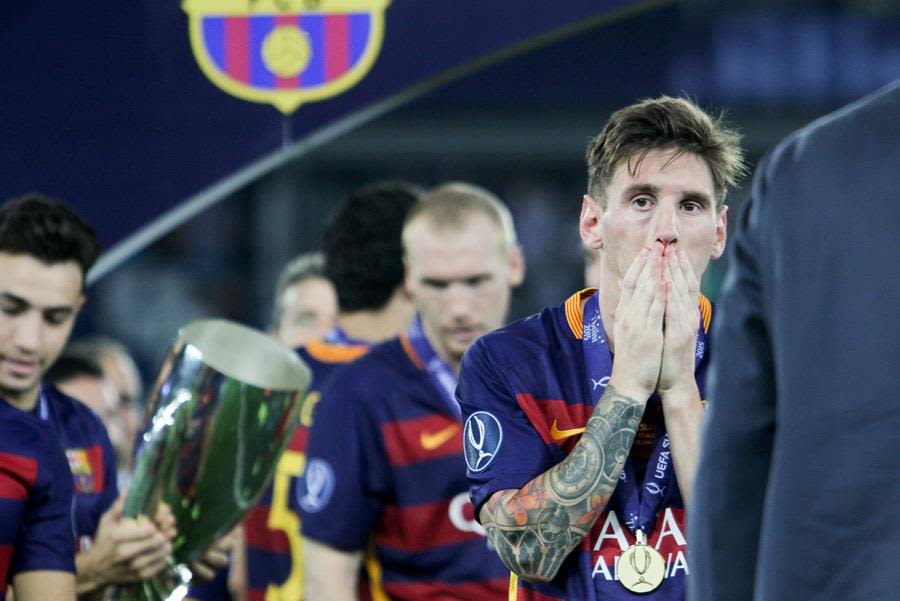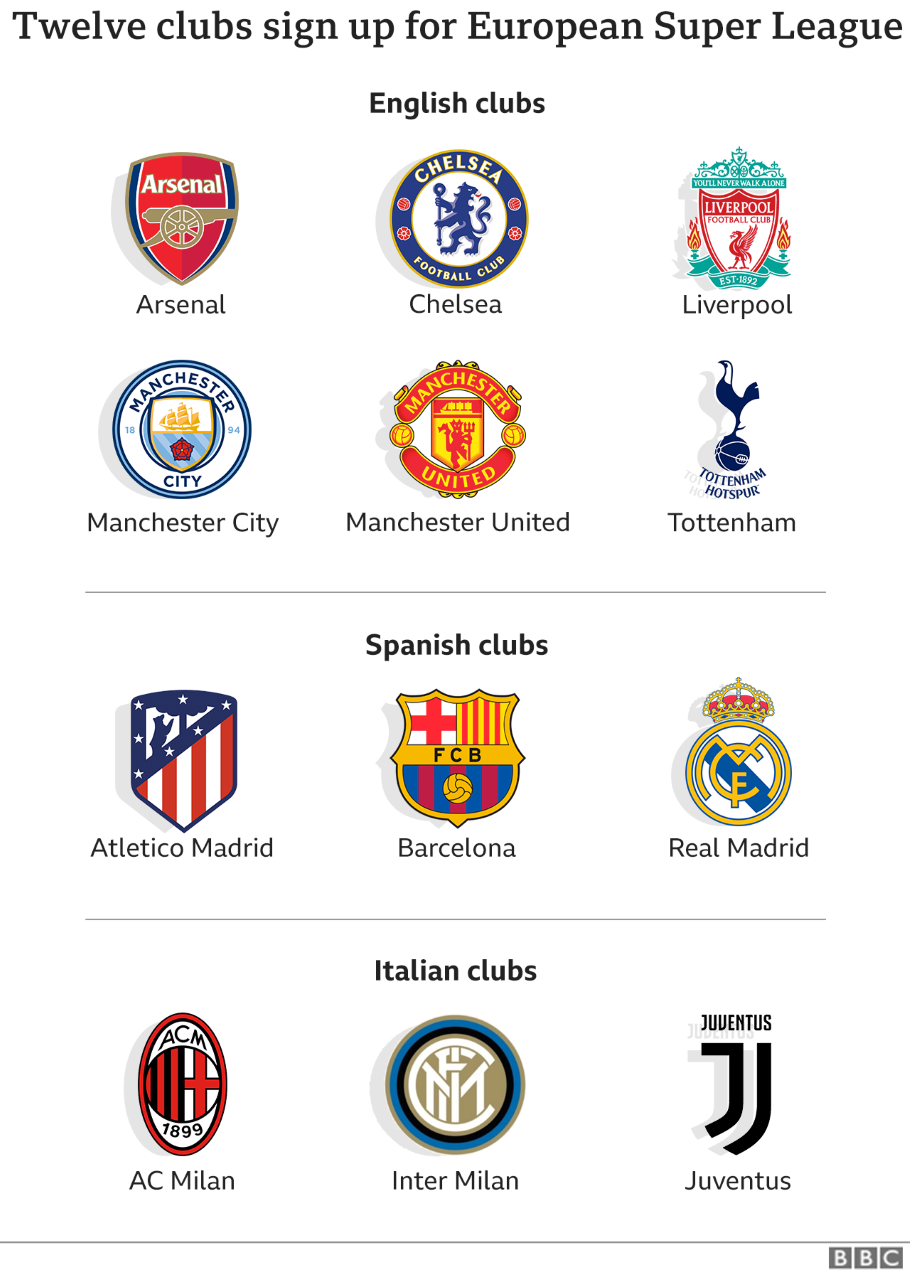The European Super League: Miles Offside
What was a bad idea from the start was defeated by united action from the world's football fans. But this has to be only the start of more dramatic change at the top of football.

Well, where do I even begin… What a turbulent couple of days that was for football.
The official announcement of the European Super League on the night of the 18th of April shook the world of football into frenzy. The twelve founding clubs – some of Europe’s most elite – were seeking to disrupt tradition and replace the UEFA Champions League with an essentially non-competitive campaign. The founding members (as well as a further unannounced three) would be exempt from relegation, whilst a further five clubs would be allowed a chance to compete through a proposed qualifying mechanism.
The ‘competition’ would involve midweek fixtures like the Champions League, with the participating clubs seeking to compete in their national leagues across weekends. The league would take place in a unique format that combined a league structure with knockout ties upon the completion of the ‘season’ to determine a final champion.

Courtesy of the BBC
Courtesy of the BBC
The twelve founding members included: Arsenal, Chelsea, Manchester United, Manchester City, Liverpool, Tottenham, Real Madrid, Barcelona, Atletico Madrid, Juventus, Inter and AC Milan. Bayern Munich and Borussia Dortmund were also asked to join but declined, whilst Paris Saint-Germain were apparently said to have not been invited.
The response from the majority of fans resembled a feeling of betrayal. It was learnt that players and managers – the very people expected to be competing in said league – only discovered the plans at the very same time as everyone else via various news outlets. The decisions undertaken to form the league were only negotiated between the owners of clubs and their boards, showing the incredibly out-of-touch reality between football’s elites and the true fans of the game.
With the creation of the ESL intending to show “the best clubs. The best players. Every single week,” the league would destroy the novelty of the big games in football; the excitement when relegation candidates Fulham beat reigning champions Liverpool like they did in March. Teams like Leicester would no longer necessarily be able to climb from League One to the Premier League crown and then the Champions League in just eight seasons. It was a sham.
It wasn’t long before former players and pundits began to voice their dismay; notably Gary Neville in his post-match comments after Manchester United’s 3-1 win against Burnley at Old Trafford on Sunday.
He branded the proposals an “absolute disgrace” and motivated by “pure greed” as it was learnt that the US investment bank JP Morgan Chase would pledge a €200-€300 million ‘welcome bonus’ to the involved clubs, totalling over €3.5bn, with league revenues expected to be in excess of €10bn during the course of the initial commitment period.
Institutions such as FIFA, UEFA, and national associations such as the FA condemned plans, stating there would be extreme consequences if followed through, to the extent of bans for the clubs involved from their domestic competitions, whilst players could be banned from national team participation.
In order to explain their actions, Arsenal’s club statement that announced the new league stated that: “…the global pandemic has accelerated the instability in the existing European football economic model”, claiming that the €3.5bn distributed amongst clubs would be used to “support their infrastructure investment plans and to offset the impact of the COVID pandemic”.
Florentino Perez, Real Madrid president and the first chairman of the Super League said: “We will help football at every level to take it to its rightful place in the world.”
This posed questions on how football will be affected at “every level”, to which Perez responded in an interview on Sunday night: “If we have more money, it will be better for everyone, because we will be able to sign players from smaller clubs for a lot of money and help them.”
Logically, he may be correct, but he fails to realise that the competition would have completely destroyed the integrity of the sport by failing to allow players and fans alike to dream – to wish that one day they will see their team’s ribbons hanging off of the biggest trophies. Even if that did happen, it wouldn’t categorically mean they would qualify to play amongst the best in Europe’s biggest competitions. What exactly would the players of these smaller clubs be playing for? A transfer there?
As a member of the football twitter community, I can without doubt say I have never seen such a frenzy on the app. Thousands of tweets posted every minute; updates every few – it was the place to be throughout this controversy. Former players; celebrities; the Prime Minister Boris Johnson; the Duke of Cambridge, and after meetings at their respective clubs - participating players finally issued statements that received hundreds and thousands of engagements.
Most notably, Liverpool captain Jordan Henderson led his team’s response: “We don’t like it and we don’t want it to happen… Our commitment to this football club and its supporters is absolute and unconditional,” while Marcus Rashford, posted a quote from Manchester United legend Sir Matt Busby: “Football is nothing without the fans.”
On Tuesday, a large group of Chelsea fans made their voices heard as they flooded the roads surrounding Stamford Bridge, blocking their team bus from entering the ground. It took Petr Cech – club legend and current technical/performance advisor at Chelsea – and his animated pleas to fans to finally allow the bus to pass the gates. A video since posted to social media hears him being branded a “f**cking traitor” – and no, they weren’t referring to his stint at rivals Arsenal.
But that brief 15 second clip summed up the feelings of most fans of these English clubs especially. I, as an Arsenal fan my entire life, can only describe my feelings over the last couple of days as incredibly angry – angry that our American billionaire owner Stan Kroenke has spat in the face of our 135-year history and the values that we as a club have come to abide by throughout that period – all for a quick buck.
The owners of these clubs committed a crime against football; a crime against the fans of the sport and the clubs they cherish and support with their every breath. But really, what can we expect? This is what happens when billionaire venture capitalists are so easily allowed to invade our game; meritocracy and integrity don’t align with their unhealthy addiction to profit.
The large-scale and rapid nature of the protests subsequently had its effects. It wasn’t long before the English clubs became unnerved and hesitant about their decisions. Reports claimed that Chelsea were beginning procedures to withdraw from plans, whilst Manchester City were also deemed to be in two minds.
And in almost a blink of an eye, the European Super League began to collapse, with Manchester City making the first move, closely followed by the five other English clubs. The dramatic developments then moved to Italy as Inter Milan swiftly departed alongside Spanish side Atletico, with Inter’s neighbour’s AC then joining proceedings. As of the time of writing this article, only three clubs remain: Juventus, Barcelona and Real Madrid, although the league has since been suspended for re-evaluation.
Despite the issued apologies from most of the Super League architects, this moment in football will never be forgotten, and the trust of the supporters is likely to never be regained, although the anger is not directed so much at the clubs themselves, but their owners.
I believe this could be a turning point in the game of football. It was all very well that organisations such as the FA, UEFA, Sky and BT voiced their disapproval of the ESL, they are just as bad as those they criticise. Sky and BT were asking fans to pay for an ‘extra selection of games’ at £14.95 per game - games that were particularly sub-par in quality – rinsing fans of their hard earned cash during a pandemic.
UEFA themselves have allowed breaches of Financial Fair Play rules to go virtually unpunished, not allowing for a complete competitive nature to their competitions which they criticised the ESL for not providing. If only they attacked the despicable acts of racism still present in today’s game with the same energy used in response to the ESL.
Huge changes are way overdue.
The power of the fans has now truly been displayed as the plans of the breakaway only survived a mere 48 hours, whilst Manchester United executive vice-chairman Ed Woodward has announced he will be stepping down from his role in the summer following the uproar caused.
We may have won the battle, but we haven’t yet won the war. It is crucial we now put pressure on these organisations who don’t practice what they preach and rid the game of the owners who treat our beloved clubs as cash cows. Let’s reclaim the sport that was once ours.

